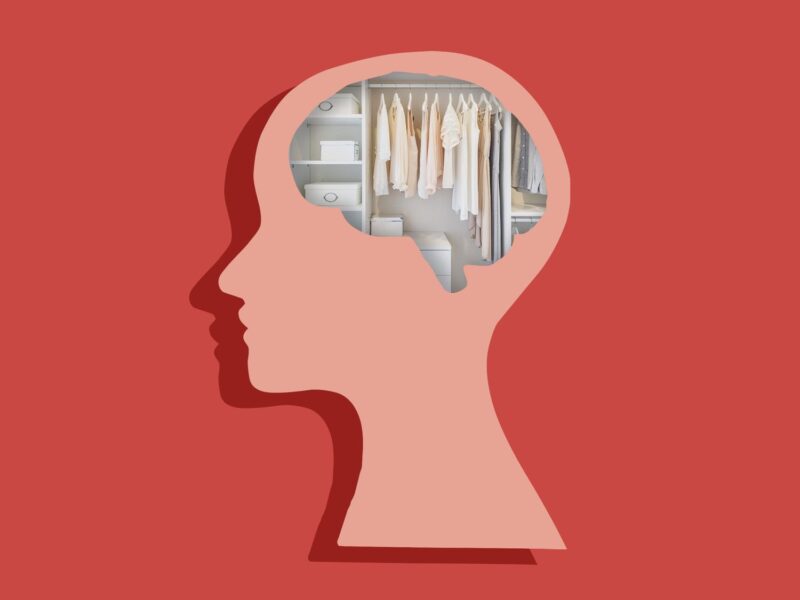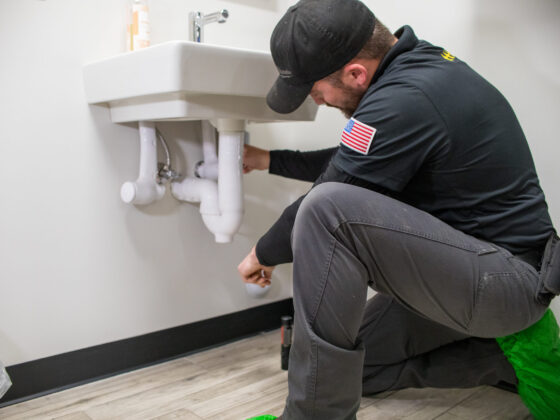Ever considered the way your surroundings influence your mood and mental health? There are significant benefits to maintaining a clean and neat living space. The relationship between a tidy home and your mental health may surprise you. Read on to delve into the correlation between tidiness and happiness, increased productivity, stress reduction, enhanced focus, improved sleep quality, and more.
Link Between Cleanliness and Mindfulness

Clean, tidy surroundings naturally make people feel peaceful and calm. This allows them to remain focused instead of feeling reactive or overwhelmed. Having control over the environment is key for mindfulness. Clean spaces provide that sense of control, leading to balanced emotions.
The phrase “happy house cleaning” refers to the positive mood created by a clean home. This can contribute to good relationships by providing a comforting shared space for social connections. A tidy home environment promotes harmonious relationships and satisfying shared living spaces, which are crucial for mental health and interpersonal happiness.
Importance of Environmental Hygiene
Living in messy or dirty conditions can cause anxiety and depression. There is a direct link between environmental cleanliness and mental health. Surrounded by disorder, it’s harder to focus due to sensory overload.
Cleanliness signifies self-care – caring for one’s space reflects caring for oneself. Furthermore, dirty surroundings can exacerbate stress levels and negatively impact self-esteem. A disorderly environment conveys lack of control to visitors, preventing full relaxation.
Relational Impact: The Happy House Cleaning

When your home radiates cleanliness, it has an astounding effect on relationships too. You feel more content inviting guests over when your place is clean which promotes social connections and networking. These interactions can significantly enhance one’s mood and overall satisfaction with life.
Services such as The Happy House Cleaning create a positive mood by presenting clean homes to clients. This can contribute to harmonious relationships by creating a comforting shared space.
Effects of Disorder on Productivity
Inability to focus, spending excessive time looking for items in mess, and procrastinating — are all side effects of disorder. A messy environment can take a toll on your productivity by offering endless distractions. Emotionally, it leaves you feeling drained and frustrated, sabotaging performance both personally and professionally.
In contrast, a tidy environment enhances productivity by offering clarity and structure. It enables easy access to needed items, cuts down wasted time, reduces frustration and increases overall efficiency.
Perspective on Clutter and Stress
Clutter creates stress. A messy environment is a visual representation of disarray which often translates into mental chaos. There’s an overwhelming sense of being disorganised which can increase anxiety levels. Hiring waste removal services to haul away excessive clutter can provide immediate relief.
Eliminating clutter creates room not only physically, but also mentally. This allows room for more enjoyable activities and thoughts, and promotes a sense of calm instead of feeling constantly under pressure.
Regular waste removal services clear the slate both externally and internally, allowing peace of mind to emerge. With clutter gone, people can reclaim control and make room for what truly matters.
Mental Health Benefits of Tidiness

Cleanliness provides multiple psychological benefits — peace of mind, reduced depression symptoms, anxiety relief, improved sleep quality – leading to holistic wellness.
Tidying up acts as a form of self-help strategy that encourages self-care activities, fosters control over one’s living quarters translating to mental control eventually. Prolonged exposure to neatness habituates the mind towards better organisation and structure regularising tranquillity as an innate emotion.
The Hermit Crab Theory
Ecologists term the phenomenon of creatures picking their habitat based on size as ‘The Hermit Crab Theory.’ Similar psychology is applicable in humans too; living spaces’ state influences emotions and thoughts subconsciously.
When your habitat — your home — is in a state of disarray, it may negatively affect your mindset. By choosing to maintain a clean and orderly environment, you’re consciously inviting peace and happiness into your life.
Mental Advantages of Decluttering
Decluttering your physical space can “declutter” your mind. Selecting what to keep and what rubbish removal methods to use both force decision making, improving those vital skills. Clutter-free spaces and effective rubbish removal also encourage efficiency since there is no need to sort through unnecessary things to find important items.
Less clutter means less stress and overwhelm. Decluttering allows people to mentally destress by physically removing excess items and rubbish – fallaciously tied to their identity or past – using proper disposal methods.
Space clears both physically and mentally for new focus and interests to develop. Deciding on the right rubbish removal techniques is part of the decluttering process that enhances clarity.
Tidying as a Self-care Strategy

Tidying is a form of self-care, not just a chore. By nurturing your space, you nurture yourself. Tidiness ensures a comfortable, hassle-free environment – essential for self-care.
Dedicating time for tidying acknowledges your worth and shows self-love through respect for your space. This can alleviate anxiety, especially when homes double as workplaces. The act of tidying creates order externally while allowing inner order to emerge. Practised regularly, it becomes an intuitive self-care habit.
Aesthetic Appeal and Mood Enhancement
A clean, organised home is aesthetically pleasing. Looking at order and beauty uplifts spirits and sparks joy. Regular cleaning introduces fresh energy, making room for creativity and new ideas that enhance mood and happiness.
Studies demonstrate colourful, uncluttered rooms help invoke positive emotions and satisfying feelings. Chaotic spaces can overstimulate visually, preventing full relaxation.
Tidy Space, Better Sleep Quality

It’s easier to relax—as well as fall asleep—in a tidy room than in a cluttered one. Unfinished tasks, including domestic chores related to tidiness, can unintentionally demand attention, making it difficult to unwind and sleep.
Having a tidy bedroom signals the brain that all is well, that there is nothing left for you to do other than rest. A clutter-free space creates a better environment for sleep by minimising visual distraction and unconscious mental tasks.
And once better sleep becomes a reality in this tranquil setting, overall mental health invariably improves. Establishing a tidy bedroom is essential for allowing the mind to settle at the end of the day.
Influence on Dietary Choices
Believe it or not, a tidy environment can impact your dietary choices. Living in disorder may increase the allure of junk food and unhealthy snacks since they are quick and come with minimal cleanup. By contrast, a clean kitchen inspires healthier eating habits by inviting the preparation of fresh meals.
A clutter-free refrigerator or pantry allows you to see what food options are available easily, reducing reliance on less nutritious alternatives.
The Act of Cleaning and Mental Relief

The physical act of cleaning itself provides mental relief. It’s almost like a moving meditation—a routine task where you can switch off your mind from incessant thoughts while doing something productive and rewarding.
Cleaning also offers instant gratification—a visible outcome in the form of a clear surface or tidy room can provide an immediate sense of achievement and relief from stress.
Closing Thoughts
An orderly, clean environment does wonders for mental health. It fosters mindfulness, enhances productivity, minimises stress, and even influences healthier lifestyle choices. Whether tidying serves as a self-care strategy, an exercise routine or simply a means to better sleep quality, its role in promoting a healthier mental state is undeniable.
Remember to consider cleaning not as a chore but rather an investment in your well being—after all, the aesthetics of orderliness are secondary to the peace it cultivates within.


